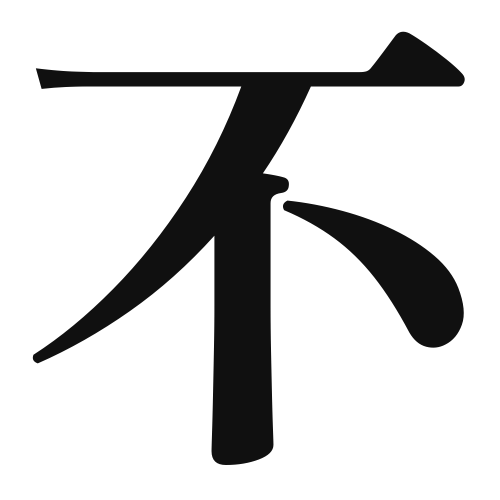1. Overview of Meaning
The kanji “不” (pronounced “fu” or “bu”) means “not” or “no.” It is used to indicate negation or the absence of something in various contexts.
2. Formation and Radical
Formation of the Kanji: The kanji “不” is classified as a phonetic-semantic compound (形声文字). It combines the concept of negation with a phonetic element, which helps convey its meaning.
Radical: The radical for “不” is also “不,” which signifies negation or denial.
3. Examples of Usage
Common Words and Phrases: Some frequently used words that include “不” are:
- 不安 (ふあん, “fuan”) – anxiety
- 不可能 (ふかのう, “fukanou”) – impossible
- 不明 (ふめい, “fumei”) – unclear or unknown
Example Sentences in Daily Conversation:
- それは不可能です。 (それはふかのうです。) – “That is impossible.”
- 私は不安です。 (わたしはふあんです。) – “I am anxious.”
4. Synonyms and Antonyms
Similar Kanji: A similar kanji is “無” (む, “mu”), which also indicates absence but is often used in different contexts, such as “無理” (むり, “muri”) meaning “impossible.”
Antonyms: The antonym of “不” is “肯” (こう, “kou”), which means “affirm” or “agree.”
5. Cultural and Historical Background
Relation to Japanese Culture: The kanji “不” is commonly used in various aspects of Japanese culture, including literature and philosophy, to express negation or denial.
Proverbs and Idioms: An example of a proverb that includes “不” is “不言実行” (ふげんじっこう, “fugen jikkou”), which means “actions speak louder than words,” emphasizing the importance of doing rather than just talking.
